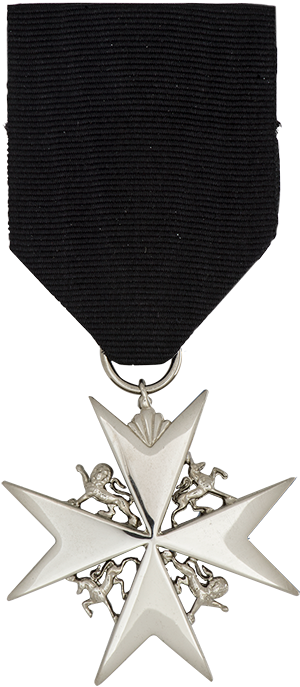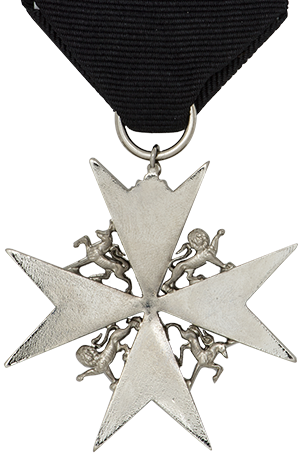The Most Venerable Order of the Hospital of St. John of Jerusalem (all grades)
The official description, eligibility, criteria and history of The Most Venerable Order of the Hospital of St. John of Jerusalem (all grades).


Context
Established in 1888 by Queen Victoria, the Most Venerable Order of the Hospital of St. John of Jerusalem is a working order of charitably minded men and women whose philanthropy is expressed principally through its two foundations, the St. John Eye Hospital in Jerusalem and St. John Ambulance. The Order traces its origins to the Knights Hospitaller, of the Crusades, who served the Abbey of St. Mary’s small hospital for sick pilgrims in Jerusalem in the 12th century. The Order was brought into the Canadian Honours System in 1990. His Majesty King Charles III is the Order’s Sovereign Head, His Royal Highness Prince Richard, Duke of Gloucester, KG, GCVO, is the Grand Prior of the Order and the Governor General is the Prior of the Priory and Chief Officer of the Order in Canada.
This Honour is administered by the Order of St. John.
Eligibility and criteria
Canadians who have performed good services for the Order, mainly through its two foundations, the St. John Eye Hospital in Jerusalem and St. John Ambulance, may be admitted to the Order. There are five main levels to the Order and usually, one is admitted at the lowest grade and is later promoted through the grades after some standard period of time. The grades are Bailiff or Dame Grand Cross, Knight or Dame of Justice or of Grace, Commander, Officer and Member.
Description
The badge consist of a true Maltese cross, an eight-pointed cross in white enamel set in silver-coloured metal. The cross is embellished in each of its principal angles with lions and unicorns, a lion being in the top left and bottom right angles.
The insignia of Member has no enamel and is bright silver in colour.
The badges have a ring attached to the top through which the ribbon passes. On neck badges, there is a larger elongated ring through which the ribbon passes.
The ribbon for all grades of the Order is a black watered ribbon.
Bar(s)
There is no bar to this medal.
Wearing
Only the insignia of the highest grade a person has been admitted to or promoted to is worn. The insignia of the Order shall be worn in sequence prescribed in the Canadian Orders, Decorations and Medals Directive (all grades of the Order rank in the same position of the Order of Precedence); after Member of the Royal Victorian Order and before any provincial order, and in the following manner depending on the grade:
- The insignia of a Bailiff or Dame Grand Cross consists of a breast star and a sash badge. The star is in the shape of the insignia of the Order, 92mm across in gold and enamel but without embellishments (lions and unicorns in the angles), worn on the left breast, below any medals and the sash badge, which consists of the insignia of the Order in gold and enamel with embellishments, 82mm across, worn on the left hip suspended from a 102mm wide sash (57mm for Dames) that passes over the right shoulder.
- The insignia of a Knight or Dame of Justice or of Grace consists of a breast star and a neck badge. The breast star is 76mm across, with embellishments, set in gold, for Justice and in silver, for Grace, all enamelled white. The neck badge is the cross of the Order, 45mm across, with embellishments, set in gold for Justice and silver for Grace, enamelled white.
- The insignia of a Commander is a neck badge, 45mm across, set in silver and enamelled white. Note that Dames and female Commanders usually wear the neck badge on a bow on the left shoulder.
- The Officer insignia is silver and enamelled white and worn on the left breast like other full-size medals.
- The insignia of a Member is also worn on the left breast but is bright silver without enamel (displayed above).
The undress ribbon is identical for all grades and bears a small silver Maltese Cross in its centre.
Postnominals
Post-nominals are authorized for internal use of the Order only.
Historical notes
The original Order of St. John of Jerusalem was established after the First Crusade to maintain an hospital in Jerusalem to care for the sick and wounded crusaders. A Grand Priory of the Order was established in London (UK) in 1831 and was granted a Royal Charter by Queen Victoria in 1888, since then, the Monarch is the Sovereign Head and Patron of the Order.
The Order's activities in Canada begun in 1883 with the First Aid course taking place in Québec City. In 1895, the Grand Priory authorized the establishment of a branch of the St. John Ambulance Association in Canada, this branch was given the status of a Priory in 1946.